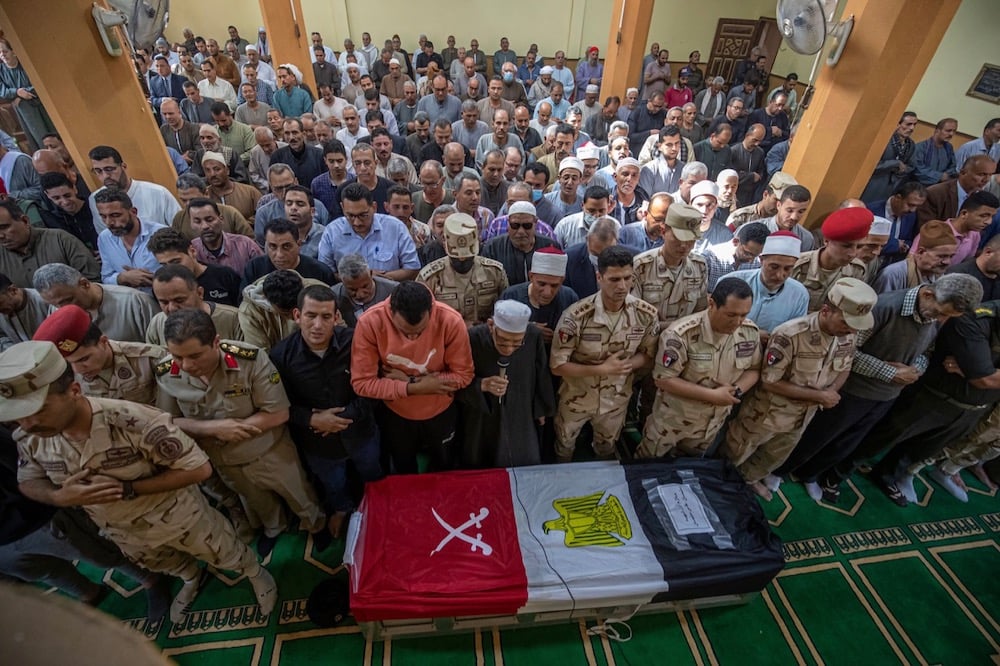Pressing authorities for facts, rights groups call for an end to decade-long ban on media coverage in Sinai.
This statement was originally published on cihrs.net on 10 August 2023.
On 30 July 2023, the National Security headquarters in Arish, Sinai witnessed armed clashes that resulted in the death of at least four security personnel, including a colonel, according to media outlets. There are conflicting narratives about the parties involved in the clashes, and whether or not civilian or militant detainees at the headquarters have been killed or injured. Egyptian authorities have so far remained silent on the incident. The lack of official information on the clashes in Arish compounds the media blackout imposed on North Sinai by Egyptian authorities, preventing independent observers, journalists and other reporters from accessing the region, making it difficult to scrutinize the government’s conduct there. By withholding the truth about the nature of the clashes, the authorities have undermined the right of citizens to question, investigate and consider whether public duties, including on security and the fight against terrorism, are being performed properly. Since 2013, Egyptian security forces have been facing jihadi insurgents in Sinai and have consequently treated the region as a closed military zone.
The undersigned organizations demand that Egyptian authorities reveal the reality of what happened during this incident as part of the public’s right to access information, end all human rights violations in Sinai, and remove their restrictions on media, especially in Sinai.
Although the clashes took place at the main government compound in North Sinai, hosting the Security Directorate, the General Intelligence Office, the Courthouse, and the Governorates’ headquarters, Egyptian authorities have not acknowledged the clashes and most independent outlets have been unable to report on them. With no official information ten days after the clashes took place, rumors have flared up, sparking questions on what really happened.
The lack of transparency on Sinai is part of the authorities’ wider restrictions on access to information in Egypt at large, including on issues unrelated to security such as opaque decision-making on the economy. Article 35 of Law 94/2015 on Counter-terrorism criminalizes publishing or circulating news that contradict the statements of the ministry of defense concerning militant attacks in Egypt, thereby limiting access to information on Sinai and the security situation to the authorities’ narrative.
In June 2020, the Supreme Council for Media Regulations, Egypt’s highest media regulatory body, has threatened to take legal action against journalists and social media users whose reports on Sinai contradict the government’s narrative. Article 94 of Law 180/2018 on the regulation of press and media stipulates that the Council can ban or order the removal of media content, according to loosely defined criteria.
The inability to report on Sinai is exacerbated by the restrictions imposed since 2013 on physical access to the peninsula, especially to independent media and civil society organizations. Authorities at times have entirely restricted Egyptians’ access to Sinai by land, granting exception solely to those who can prove that they live or work in the peninsula. [1] Sinai has effectively been under a state of emergency for nearly a decade, including through Article 53 of the Counter-Terrorism Law 94/2015, granting the President the right to take measures to maintain security and public order, including the evacuation or isolation of some areas or imposition of a curfew, which paved the way for presidential Decree 442/2021 through which authorities imposed sweeping security measures in Sinai.
Despite the restrictions on information, independent media and human rights organizations have documented an array of serious abuses committed in Sinai by Egyptian security forces and aligned militias, as well as the jihadi insurgents. Crimes committed include forced displacement and home demolitions, mass arbitrary arrests, torture, and extrajudicial executions. Residents of Sinai have also suffered severe restrictions on movement and frequent shutting down of internet and communication services. Yet the real scale of the human rights abuses committed in Sinai cannot be uncovered in light of the Egyptian authorities’ crackdown on independent media and civil society, and lack of transparency.
The right of access to information is enshrined in Article 19 of the International Covenant on Civil and Political Rights (ICCPR), to which Egypt is a state party. General comment no. 34 of the Human Rights Committee, the authoritative body in charge of interpreting the ICCPR, states that “the right of access to information includes a right whereby the media has access to information on public affairs and the right of the general public to receive media output. To give effect to the right of access to information, States parties should proactively put in the public domain Government information of public interest. States parties should make every effort to ensure easy, prompt, effective and practical access to such information.” While the exercise of this right may be limited in specific circumstances, including for the protection of state security, those limitations must be provided by law, must be necessary for the protection of legitimate interests, and proportionate. A nearly decade-long ban on media coverage in Sinai does not meet those criteria.
[1] bit.ly/3Ot28hV



